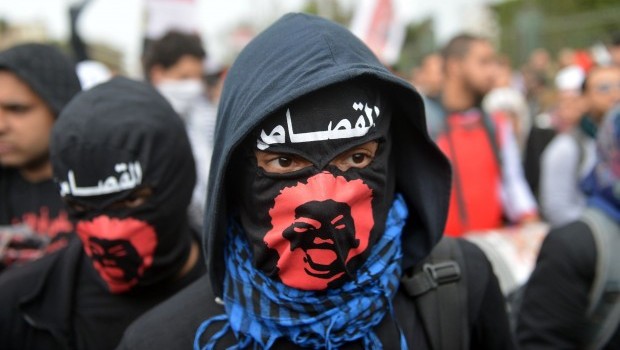What we term as the “Arab street” is simply perceived in the non-Arab world as “public opinion”. For non-Arabs, the Arab street not only represents the causes of those who have enough time to take to street and stay there, it also represents the sentiments of everyone else, regardless of whether they opt to express their own feelings and stances in other ways.
Some Arabs took to the streets two years ago and have yet to return, the reason being that the majority of people you see on television screens screaming, shouting, or throwing stones have no job to do; no offices or factories to go to. For them, the street is simply more stimulating than staying at home, particularly if they are unemployed and hopeless.
There was a time when the Arab street could be considered synonymous with public opinion. People used to take to the streets in order to champion Palestine, demand bread, and then to call for freedom. However, now we see the ‘Ultras Ahlawy’ (fanatical supporters of Al-Ahly football club) taking to the streets to reject court rulings and to express their discontent at the formation of the government. In the past, the police resorted to these ultras to assist in strengthening security and controlling protests. Now, however, the police themselves are on strike and are declining do their jobs in the police stations, whereas the ultras have besieged an officers’ club in Cairo. It is noteworthy that from this very club came the late Egyptian presidents Muhammad Naguib, Gamal Abdel Nasser, and Anwar Sadat, along with former president Hosni Mubarak. Now we are witnessing the fruits of their wisdom.
Those who took to the streets of Tahrir Square on 25 January 2011 had familiar faces; their objectives were well known. They also had spokesmen to speak for them, who in turn knew how to address the masses, regardless of their social backgrounds. Now, however, those on the streets all speak Arabic, but—like those who tried to build the Tower of Babel, only to be scattered and confused by God Almighty—they can no longer understand each other. The scene is dominated by the ultras and Black Bloc (an Egyptian anarchist group) following the demonstrations and sit-ins of judges, lawyers, and now policemen.
So as not to give the wrong impression, let me clarify here that I am not in any way satisfied by the new Egyptian regime’s manner of conduct. However, I think that the small fires that have ignited across all Egyptian cities—from the towns bordering the Suez Canal to the officers’ club in Cairo and the Alexandria seaport—will culminate in a huge blaze that will be beyond the capacity of any firefighter.
The Muslim Brotherhood’s General Guide can advise President Mohamed Mursi on the best moral path to take, but he cannot help him ensure a USD 5 billion loan from the World Bank. If the General Guide was indeed an expert in sovereign affairs, he would have advised the president to reject America’s USD 160 million grant, for this is a shameful amount that was offered in a humiliating way.
Since the election of President Mursi, the losses sustained by the Egyptian stock exchange have amounted to billions. Instead of accepting the USD 160 million grant, which could have been raised by a group of businessmen, the Egyptian regime could have saved billions by advocating stability and reassurance, instead of alienating at least half of the country’s population.
For the first time in six decades, Egypt has taken to the streets. Now the ultras are rejecting court rulings, the policemen are on strike, and President Mursi only seems to care about his official image.
